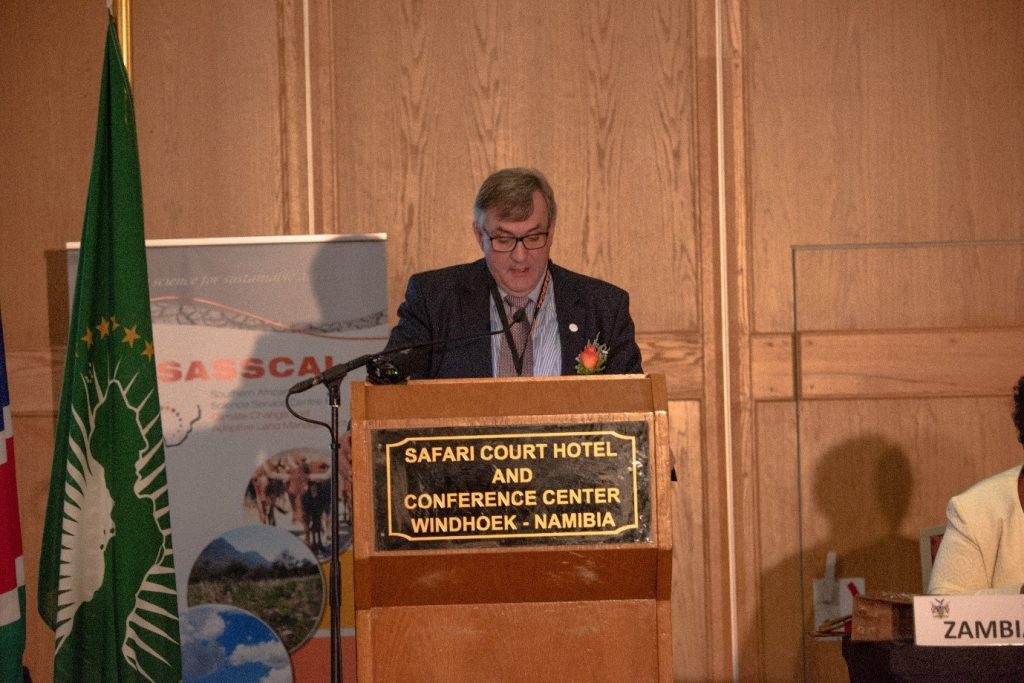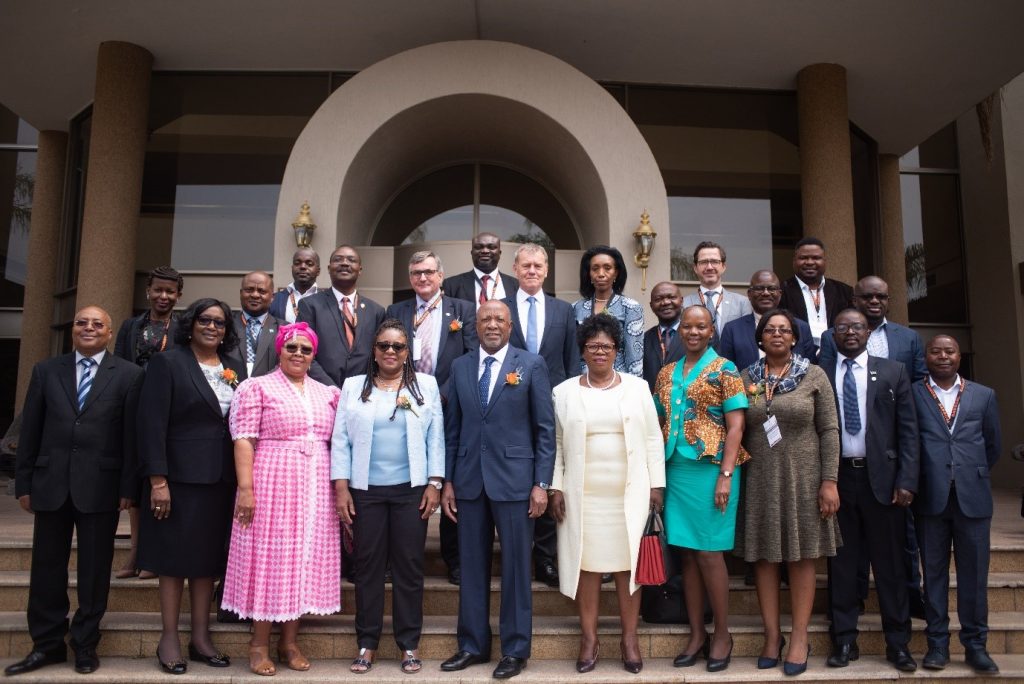At the first Ministerial Meeting which was held in Windhoek on Friday 21 September 2018, Dr Wilfried Kraus, representing Minister Hon Anja Karliczek, made the announcement that the SASSCAL 2.0 call will be out in a matter of weeks. The long-awaited announcement was received with a loud applause from the SASSCAL community. The second research phase was developed through rigorous and robust consultative processes within the region to ensure it is in alignment with both the regional and international research agendas. Dr Kraus added that ‘the German Research Ministry has committed another 10 million Euro for this second research phase of SASSCAL and up to 3 million Euro to start a regional Graduate School in Integrated Water Resources Management.

Dr Wilfried Kraus – German Federal Ministry of Education and Research (BMBF) representative
The Ministerial Meeting has set into motion the next phase of SASSCAL’s transformation into an International Organisation. SASSCAL 2.0 will therefore see the regional science service centre transition from a resource-based to a knowledge-based organisation in search for solutions to the climate change and land management challenges.
SASSCAL 2.0 will consolidate SASSCAL 1.0 research thematic areas of Agriculture, Biodiversity, Climate, Forestry and Water into five Research Priority Areas (RPAs) of:
1. Climate Service Provision
2. Food Security
3. Water Security
4. Biodiversity Conservation
5. Sustainable Forests and Woodlands
Research activities within these RPAs have been designed in an integrated way for the generation of important added value. The synchronised and aligned research activities within the RPAs will allow for studies that consider cascading effects e.g. along the climate change – water – food nexus and the land use change – forestry – biodiversity nexus. Simultaneously, SASSCAL will prioritise trans-boundary, regional integration that is the core mandate of the Regional Science Service Centre. The five SASSCAL countries are linked by many fluxes of material and energy, and many drivers and processes act beyond each country’s border. During the implementation of SASSCAL 2.0 research phase, SASSCAL’s position as a regionally relevant and internationally acknowledged institution serving the region will be strengthened. The call will be announced in German and Namibia through relevant various media as well as the SASSCAL website. www.sasscal.org
In his speech during the Ministerial Meeting, Dr Wilfried Kraus noted some of the achievements of SASSCAL 1.0 to include:
- 88 research projects that were concluded from across the region and Germany
- Over 25 Million Euro which was invested into research and research infrastructure
- Operation of a network of more than 150 automatic weather stations and 54 biodiversity observatories
- Establishment of an Open Access Data Centre which provides products and services for decision making and sustainable development
- SASSCAL has enhanced the visibility of science from Africa in the international scientific community and established new cooperation between African and German researchers in research and capacity development.
He further mentioned that “SASSCAL has all ingredients to become a regional basis for a large community of experts providing policy relevant services, for example, on regional trends in climate, on land-use and land-cover change, or for cross-border early warning systems” . With SASSCAL 2.0 on the horizon Dr Kraus stated that SASSCAL is well positioned to meet its core objective ‘to strengthen the science base in Southern Africa by developing and combining scientific research with capacity building and infrastructure development’.

Pictured, 5th from the left, His Excellency Vice President of the Republic of Namibia Dr Nangolo Mbumba, Ministerial delegation, SASSCAL’s Governing Board, SASSCAL Executive Director, WASCAL Governing Board Chairman and SASSCAL management pictured during the Ministerial meeting
SASSCAL Marketing and Communications
Enquiries: greater.mukumbira@sasscal.org




